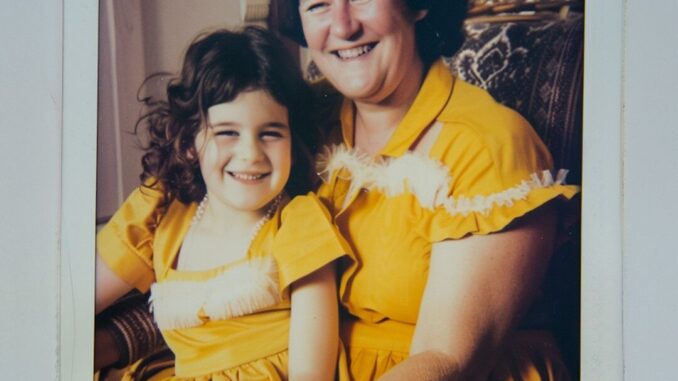
Every morning in my house was a beautiful mess. I clung to my coffee like it was the only thing keeping me grounded as my three kids wreaked havoc around me—spoons flying, oatmeal splattering everywhere, and sibling battles breaking out before the sun even rose. Madison, the bossy older sister, tried to keep Ethan in line, but he just laughed as he evaded responsibility and skidded down the hallway in his socks. Ben, the middle child, wisely kept his head down behind his juice.
I loved them more than anything, but some mornings, I just wanted to scream. Especially when I glanced at the clock and realized—once again—I was going to be late for work.
By the time I dropped the kids off, I was already steeling myself for the storm waiting for me at the office. My boss, Margaret, had zero tolerance for tardiness, especially from me. It seemed like she viewed my struggles as a single mom as a personal flaw rather than a reality. Her sharp glares and curt remarks made every minute at work feel like walking on eggshells.
As I slipped through the office door, Laura, my only friend there, raised an eyebrow and shot me her usual smirk. “Rough morning?”
“Oatmeal should not be a weapon,” I muttered, flopping into my chair. Before I could add anything else, I felt a shift in the air. I didn’t need to turn around to know Margaret had entered.
Her voice was cold. “Did you miss the part about dressing professionally?” Her eyes scanned my wrinkled blouse and frazzled hair.
“I—”
“In my office,” she ordered, her tone flat, and walked away.
I followed, doing my best not to shrink in front of her. Her office always felt clinical, devoid of warmth. She shut the door and got straight to the point. “You were late. Again.”
I opened my mouth to explain. “I’m sorry. My kids—”
“Are not an excuse,” she snapped. “Being a single mother was your choice. Maybe you should have stopped at one.”
The blood drained from my face. That wasn’t just unprofessional—it was cruel.
“And maybe,” I said, my voice trembling with anger, “you shouldn’t judge something you’ve never experienced. But I guess that’s easy when the only thing in your life is your job.”
For a brief moment, her expression darkened, but I didn’t wait to see what would happen next. I stormed out, leaving her office in stunned silence.
The whole day, I waited for the consequences. Every minute felt like a countdown to my termination. But to my surprise, Margaret’s office door stayed shut. She never once left her office. That was unlike her.
The next morning, I arrived early, prepared to quit before she could fire me. But as I walked past her desk to submit my resignation, something caught my eye. One of her drawers was slightly open. I know I shouldn’t have looked, but curiosity got the best of me. I pulled it open a little further and spotted a photo.
It was Margaret—smiling. Really smiling. Her hair was loose around her shoulders as she held a baby girl. On the back of the photo, a handwritten message read: “In loving memory of Liza, the light of my life. Without you, I’ll never be whole again.”
My knees almost gave out. Margaret had been a mother. She had lost her daughter. I had assumed she was cold because she didn’t understand, but now I realized she had been grieving. Maybe she still was.
The words I had thrown at her yesterday echoed in my mind. You have nothing but this job.
That afternoon, I found myself standing in front of her house, heart racing. I didn’t know what to say, only that I had to say something. When she opened the door, I barely recognized her—no suit, no makeup, just a broken woman whose grief was written all over her face.
“I didn’t know,” I said softly. “I’m so sorry for what I said.”
She looked at me, her eyes red, her lips trembling. “No one does,” she whispered.
I told her that she was right—being a mom was hard, but it was everything. And I now understood it had been everything to her too. She nodded slowly, and then she admitted, “I think I resented you. Because you still have what I lost.”
She told me about her daughter Liza, how she had tried to juggle everything—being a boss, a mom, a strong woman. But no amount of strength could save Liza when she got sick. And then she was gone.
I hugged her, not expecting her to return it at first. She stood stiff and shocked, but then she crumbled in my arms. We stood there on her porch, two mothers bound together by pain.
“I don’t know how to be anything else anymore,” she said through her tears.
“You don’t have to be alone,” I told her. “You still have something to give. My kids—they’d be lucky to have someone like you.”
She gave a shaky laugh, unsure. “Who would want me as a mother now?”
I smiled. “Well, there are three kids in my car right now who would love to meet you.”
Madison, always bold, sprinted up to her. “Hi! Mommy says you make great waffles!”
For a moment, Margaret just stared, stunned. Then she laughed—a real laugh, full of life, warmth, and the sound of something healing.
That day, we didn’t just make peace. We made space for something new. A connection. A family we hadn’t expected, but one we both desperately needed.
Leave a Reply